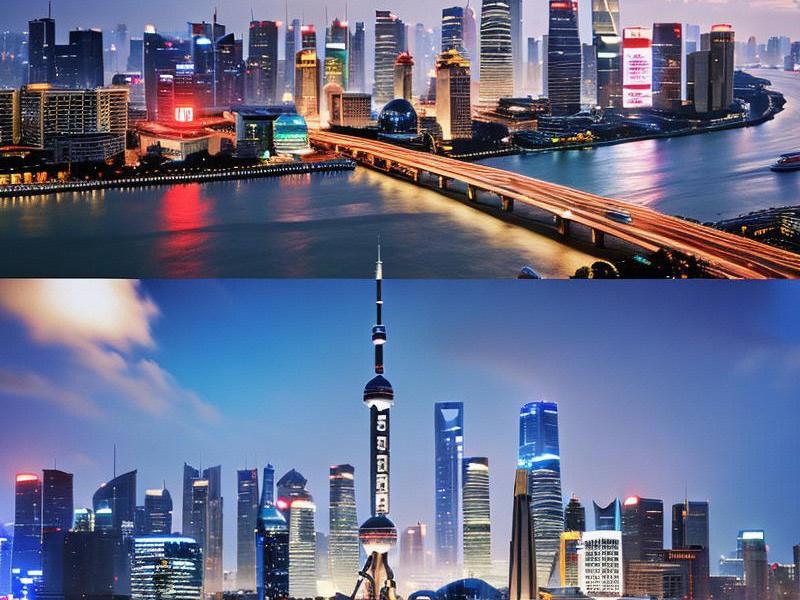Shanghai: A Dynamic Metropolis of Innovation and Culture
⏱ 2025-05-05 14:32 🔖 上海龙凤419
📢0℃

Shanghai, often referred to as the "Pearl of the Orient," is a city that has undergone remarkable transformation over the past few decades. Once a small fishing village, it has grown into one of the most dynamic and influential cities in the world. The city's strategic location at the mouth of the Yangtze River has played a pivotal role in its rise as a global economic powerhouse.
The urban development of Shanghai is nothing short of extraordinary. The city's skyline is a testament to its rapid modernization, with iconic skyscrapers like the Shanghai Tower, the Jin Mao Tower, and the Oriental Pearl Tower. These structures not only symbolize Shanghai's economic prowess but also serve as a beacon for innovation and architectural excellence.
One of the most striking aspects of Shanghai's urban development is the transformation of the Pudong area. Once a rural expanse, Pudong has been transformed into a bustling financial district. The Lujiazui Financial District, home to some of the world's tallest buildings, is a hub for international finance and commerce. The Bund, on the other side of the Huangpu River, offers a contrasting view of the city's past, with its historic architecture and European-style buildings.
Shanghai's cultural scene is equally rich and diverse. The city is a melting pot of different cultures, reflecting its history as a port city that has welcomed people from all over the world. This cultural diversity is evident in the city's art galleries, theaters, and music venues. The Shanghai Museum, one of the largest and most prestigious museums in China, houses an impressive collection of Chinese art, including ancient ceramics, calligraphy, and paintings.
爱上海同城对对碰交友论坛 The city's vibrant art scene is showcased in galleries like the Power Station of Art, which hosts contemporary exhibitions from both Chinese and international artists. Shanghai also hosts numerous cultural festivals throughout the year, such as the Shanghai International Film Festival and the Shanghai Fashion Week, attracting visitors from around the globe.
Innovation is at the heart of Shanghai's identity. The city has established itself as a leading center for technology and research. Zhangjiang Hi-Tech Park, often referred to as "China's Silicon Valley," is home to numerous high-tech companies and research institutions. The city's commitment to innovation is evident in its efforts to attract top talent and foster a supportive environment for startups.
Shanghai's role in global trade is unparalleled. The Port of Shanghai is the busiest container port in the world, handling millions of containers annually. This maritime hub connects China to the rest of the world, facilitating trade and economic growth. The city's free trade zones, such as the China (Shanghai) Pilot Free Trade Zone, have been instrumental in promoting international trade and investment.
The city's infrastructure continues to evolve to meet the demands of its growing population and economy. The Shanghai Maglev Train, the world's fastest commercial train, connects the city center to Pudong International Airport in just minutes. The expansion of the metro system has made public transportation more accessible, reducing traffic congestion and promoting sustainable urban living.
上海龙凤千花1314
Shanghai's global influence extends beyond its economic and cultural achievements. The city is a member of the United Nations Global Compact and plays an active role in international organizations and initiatives. Its leadership in addressing global challenges such as climate change and sustainable development is commendable.
The city has also made significant strides in environmental sustainability. Initiatives like the Green Building Program and the expansion of urban green spaces aim to reduce carbon emissions and improve the quality of life for its residents. Shanghai's commitment to sustainability is reflected in its efforts to promote renewable energy and reduce waste.
Education is another area where Shanghai excels. The city is home to some of the best universities in China, including Fudan University and Tongji University. These institutions attract students from around the world, fostering a culture of academic excellence and innovation. Shanghai's education system is a key driver of the city's economic and social development.
上海龙凤419自荐 Tourism is a vital part of Shanghai's economy, with millions of visitors drawn to its rich history, vibrant culture, and modern attractions. Landmarks like the Yu Garden, the Nanjing Road shopping district, and the Yu Yuan Garden offer a glimpse into the city's past, while attractions like the Shanghai Tower and the Shanghai Disneyland provide a taste of its modernity.
Shanghai's culinary scene is another highlight for visitors. The city is known for its diverse and flavorful cuisine, ranging from traditional Shanghainese dishes like Xiaolongbao (soup dumplings) to international flavors. The city's night markets and food streets offer a unique dining experience, with a wide array of street food and local delicacies.
Despite its rapid development, Shanghai remains committed to preserving its cultural heritage. Efforts have been made to protect historic neighborhoods and landmarks, ensuring that the city's rich history is not lost in its pursuit of modernity. The blending of old and new is a defining characteristic of Shanghai, creating a unique urban landscape that is both dynamic and timeless.
In conclusion, Shanghai is a city that embodies the spirit of innovation, culture, and global influence. Its rapid urban development, rich cultural scene, and commitment to sustainability make it a model for other cities around the world. As Shanghai continues to grow and evolve, it remains a symbol of China's rise as a global power and a testament to the potential of urban centers to drive economic and cultural progress.
The Shanghai Equilibrium: How China's Most Cosmopolitan Women Balance Tradition and FuturismShanghais Development in Technology InnovationShanghai’s Regional Symphony: Where Metro Core Meets Ancient Waterways in the Yangtze DeltaQuantum Leap: How Shanghai's 30-Minute Metropolitan Circle Is Redefining Urban CivilizationShanghai Reimagined: Where Futurism Meets Heritage in China's Global MetropolisShanghai & Its Satellite Cities: The Engine of China's Most Dynamic Economic Zone从石库门到梧桐树:上海美女的"成长叙事"与城市温度Shanghai, City of DelightThe Algorithmic Playground: How Shanghai's Entertainment Venues Are Redefining Urban Leisure《科创走廊启示录:上海张江与苏州BioBAY的双城实验》

